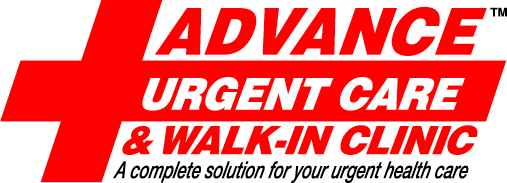 Chloroquine Resistance: Causes and Implications in Healthcare
Chloroquine Resistance: Causes and Implications in Healthcare
Understanding Chloroquine Resistance Mechanisms
Understanding Chloroquine Resistance Mechanisms
The development of chloroquine resistance in malaria parasites is a complex and multifactorial process. One key mechanism involves mutations in the genes encoding for the parasite's transport proteins, leading to decreased accumulation of chloroquine within the parasite's digestive vacuole. This decreased drug concentration hinders the ability of chloroquine to bind to heme molecules and inhibit hemozoin formation, a crucial step in parasite detoxification. Additionally, efflux pumps in the parasite's membrane can actively pump out chloroquine, further reducing its intracellular concentration and efficacy.
| Mechanism | Description | | --- | --- | | Mutations in Transport Proteins | Decreased accumulation of chloroquine in the parasite's digestive vacuole | | Inhibition of Hemozoin Formation | Hindered ability of chloroquine to bind to heme molecules | | Efflux Pump Activity | Active expulsion of chloroquine from the parasite's membrane |
Impact of Chloroquine Resistance on Malaria Treatment

Chloroquine resistance poses a significant challenge to malaria treatment efforts worldwide. The reduced efficacy of chloroquine in treating malaria infections has led to prolonged illness, increased mortality rates, and the need for alternative medications. Patients in regions where chloroquine resistance is prevalent may not respond as well to treatment, resulting in prolonged recovery times and potential complications. Healthcare providers must stay vigilant in monitoring resistance patterns and adjusting treatment protocols accordingly.
Global Spread and Surveillance of Resistance
Chloroquine resistance poses a significant challenge in the global battle against malaria, with surveillance efforts crucial in tracking its spread and monitoring the effectiveness of current treatment strategies. Despite advancements in healthcare, the emergence of resistance highlights the urgent need for continuous monitoring and data collection to adapt interventions effectively. Surveillance programs play a vital role in identifying hotspots of resistance, guiding healthcare providers in their decision-making processes and ensuring the strategic allocation of limited healthcare resources. The collaborative efforts between healthcare systems and research institutions are key to staying ahead of the evolving challenges posed by chloroquine resistance.
Strategies for Combating Chloroquine Resistance

Identifying alternative treatments that can effectively combat chloroquine resistance is imperative in the fight against malaria. Utilizing a multi-faceted approach that incorporates a combination of antimalarial drugs can help overcome this challenge. By promoting the development and use of new drug formulations and combinations, healthcare providers can enhance treatment efficacy and reduce the impact of resistance. Additionally, implementing strict monitoring protocols and surveillance systems can help track the spread of resistance and inform timely interventions to prevent its escalation. Strategic measures such as resistance mapping and targeted interventions are crucial in maintaining the effectiveness of chloroquine and preserving its role in malaria treatment.
Future Implications for Healthcare Systems
The future implications of chloroquine resistance on healthcare systems are profound, necessitating a proactive approach from the medical community. As resistance continues to evolve, healthcare systems must adapt quickly to ensure effective treatment strategies for malaria. This includes investing in research and development of alternative medications, as well as enhancing surveillance and monitoring efforts to track the spread of resistance. Collaboration between healthcare providers, researchers, and policymakers will be crucial in addressing the challenges posed by chloroquine resistance and safeguarding public health.
| Keyword | Slang |
|---|---|
| Chloroquine | Script - Prescription |
| Resistance | Comp - Compound medication |
| Healthcare | Pharm Party - A gathering where people trade prescription drugs |
Collaborative Efforts in Addressing Resistance Challenges
In the fight against chloroquine resistance, collaborative efforts play a crucial role in addressing the challenges posed by this evolving threat in healthcare systems worldwide. By fostering partnerships between researchers, healthcare providers, pharmaceutical companies, and public health agencies, we can pool resources, share expertise, and develop innovative strategies to combat resistance effectively. Through these joint initiatives, we can enhance surveillance, research new treatment options, and implement preventive measures to mitigate the spread of resistance strains, ultimately safeguarding the efficacy of antimalarial therapies.
For further information on chloroquine and antimalarial resistance, you can refer to the following reputable sources: Centers for Disease Control and Prevention (CDC) World Health Organization (WHO)



